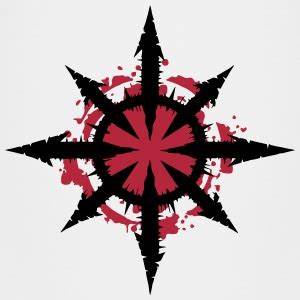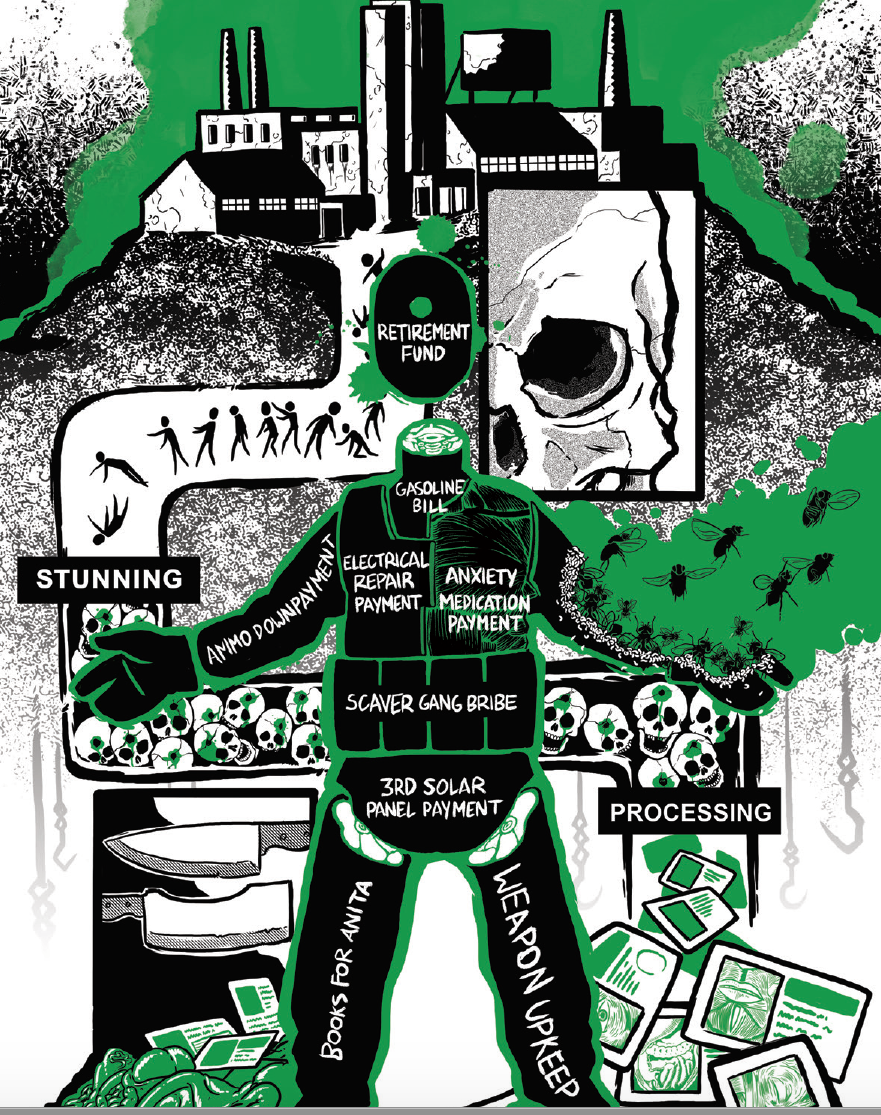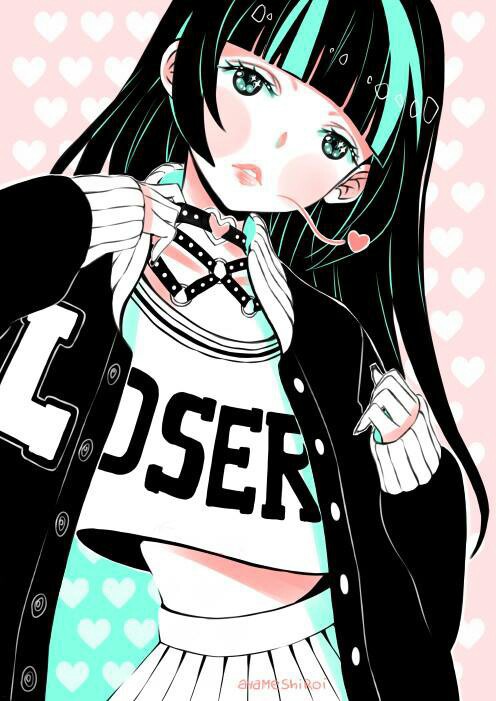Just proud of myself and wanted to brag, but I missed that post from a few days ago. AMA about any of these if you're curious:
books
January
Jane Austen - Northanger Abbey
Robert Nichols - Theft is Property!
Cixin Liu - The Three-Body Problem
Tom O'Neill - Chaos: Charles Manson, the CIA, and the Secret History of the Sixties
Andre Alexis - Fifteen Dogs
Aph Ko - Racism as Zoological Witchcraft
Various Authors - Love After the End: An Anthology of Two-Spirit and Indigiqueer Fiction
Jenny Chan, Mark Selden, & Pun Ngai - Dying for an iPhone
Ursula K. LeGuin - The Found and the Lost (13 novellas)
W. E. B. Du Bois - The Souls of Black Folk
Brian Moore - The Magician's Wife
February
Charles Taylor - Modern Social Imaginaries
Marcel Proust - Swann's Way
William Blum - Killing Hope
Michelle Good - Five Little Indians
Kristen J. Sollée - Witches, Sluts, Feminists
March
Catherine Hernandez - Scarborough
Jane Jacobs - The Life and Death of Great American Cities
Omar El Akkad - What Strange Paradise
Steve Klabnik and Carol Nichols - The Rust Programming Language
Esi Edugyan - Washington Black
April
Clayton Thomas-Müeller - Life in the City of Dirty Water
Marcel Proust - In the Shadow of Young Girls in Flower
Aditya Bhargava - Grokking Algorithms
Cixin Liu - The Dark Forest
May
Karl Marx - Capital Vol. 3
June
Peter Watts - Blindsight
John P. Clark - Between Earth and Empire
Marcel Proust - Guermantes Way
Jessica Fern - Polysecure
Sara Collins - Confessions of Frannie Langton
G. W. F. Hegel - Introduction to the Philosophy of History
July
Xiran Jay Zhao - Iron Widow
Kim Moody - Tramps and Trade Union Travelers
Elena Ferrante - My Brilliant Friend
Itzik Ben-Gan - T-SQL Fundamentals
August
Homer - The Illiad
Keith Basso - Wisdom Sits in Places: Landscape and Language Among the Western Apache
September
Marcel Proust - Sodom and Gomorrah
Richard Lachmann - First-Class Passengers on a Sinking Ship: Elite Politics and the Decline of Great Powers
October
Marcel Proust - The Prisoner
James Ladyman and Don Ross - Every Thing Must Go
November
Marcel Proust - The Fugitive
Gabor Maté & Daniel Maté - The Myth of Normal
Nora Roberts - Origin in Death
Stephanie Kelton - The Deficit Myth
December
Marcel Proust - Finding Time Again
Tyler A. Shipley - Canada in the World: Settler Capitalism and the Colonial Imagination
Adrienne Maree Brown - Grievers
Albert Camus - The Myth of Sisyphus
At least tell us which ones you liked the most. Any faves ? or things you would really recommend ?
I'll skim over a few.
As for fiction: Proust is amazing but not really comparable to other fiction. I might recommend but see my other comment for caveats. Definitely try some Ursula K. Leguin if you get the chance. Confessions of Frannie Langton is a wild ride if you want all the evils of 19th century plus a very forbidden lesbian romance. Iron Widow is a great new YA fantasy book set in a fictionalized China, if that's up your alley. My Brilliant Friend is just solid - interesting characters and a very human-feeling story that starts in mid-century Italy - and I'm excited to continue. Origin in Death is the trashiest thing I've ever read.
As for non-fiction: Theft is Property! is actually a great read and a solid philosophical exploration of the question: "if Indigenous people didn't have a Western conception of property rights, how can it be said that the land was stolen from them?" Chaos is great and a bit unnerving, answering a few questions about Manson and that time period but prompting many more. W.E.B. Du Bois is one of the most elegant writers on my list here for sure and really elucidates the failures of the reconstruction era. Killing Hope is a leftist classic if you want an itinerary of everywhere the long arm of US imperialism fucked shit up. Wisdom Sits in Places, a look at how knowledge is stored among the Western Apache (among many other things), was fascinating but I'm always a sucker for anthropology that breaks open my brain a little. Probably 60% of Every Thing Must Go went over my head but it's a philosophical position (ontic structural realism) that I feel in the deepest depths of my soul so it was nice to have validated. Canada in the World is :kkkanada: in book form if you know anyone who's a little too patriotic.
Long-ass public transit commutes, logging off harder, no job for the first few months of the year, and I'm a fast reader.
Public transit is noisy and I can't read unless it's silent (tried listening to ambient music, can't do it).
seriously, i have to make myself do 12 a year, and sometimes I'll count a pamphlet.
Last year I read:
Blackshirts and Reds: Rational Fascism and the Overthrow of Communism by Michael Parenti ; Revolutionary Suicide by Huey P. Newton ; Blood in My Eye by George Jackson ; Patriots, Traitors and Empires: The Story of Korea’s Struggle of Freedom by Stephen Gowans ; The Foundations of Leninism by J.V. Stalin ; In North Korea: First Eye-Witness Report by Anna Louise Strong (pamphlet) ; What Is Marxism? by Emile Burns (pamphlet) ; Timequake by Kurt Vonnegut ;
Currently reading: Assata: An Autobiography by Assata Shakur
I probably read 50 books worth of posts in the year, but I can't sit down long enough to actually read a book; which is very frustrating because I want to.
And no I don't think it's ADHD specifically (I have a different diagnosis), I think it's mainly anxiety making it difficult for me to process thoughts that aren't immediately related to like... living & existential torment.
Do you feel anxiety when you try to start a book, or is the act of opening one just too much?
For me I never read fiction for a long time because I wanted to learn things, and learn things that were directly relevant to life or at least to the history that got us to this point. If I couldn't see where it connected it felt like a waste of time.
I start reading a book, but can't get far in it before thoughts start creeping in my mind about stuff that's going on with me & then I can't focus to read what's going on in the book anymore.
I generally just have an extreme amount of intrusive thoughts about everything. I don't really have a good way of managing it & meditation has just never seemed like a good option to me. Maybe some of that is ideology, but I also feel like I just need a constant stream of new thoughts to keep the darkness out.
Would it bother you to talk about it in more detail?
IDK, I guess not. It may take me time to articulate responses though.
:soypoint-1: G. W. F. Hegel - Introduction to the Philosophy of History :soypoint-2: Holy shit, it's them, the hegel understander has logged on!!!
My takeaway is that Hegel is personally an asswipe but I do have a soft spot for his philosophy. Dialectical reasoning is very old but his dialectics are novel and eye-opening. I find a peculiar connection between them and Douglas Hofstadter's reasoning on consciousness and life patterns as strange, self-referential loops that crosses levels of meaning or planes of action. I don't know if the book I read was the greatest introduction but it did well enough. I always have to recommend this comment (warning: :reddit-logo: ) as a great primer.
Some of it takes a bit of translating maybe - e.g. when he says the state is the highest expression of freedom, it comes off as a bit strange to someone on the other side of the 19th and 20th centuries, but my understanding is that perspective sees the state as a mechanism for the Geist to finally be able to express itself intentionally.
As for The Deficit Myth, it was a good book that I think is largely accurate about how money works in a modern economy. At times it was a bit too painfully simplistic and repetitive, but she did nail down the point well. If you have no exposure to MMT it's not a bad read - if you do, you probably don't need to read it unless you think MMT means printing money.
I'd say that one is not a bad place to start
and especially because it's short. I want to try more Hegel this year but I may need some prerequisites.I’ve been meaning to read it for a while but get put off by the fact many of the adherents just seem like Keynesians who want to “fix capitalism”.
Yup haha. While I think their framework of the money system is a useful tool in any lefty's toolbox, it always seems like the logical mode of action is: we need to educate more people about MMT, then those people can vote accordingly for politicians with the same understanding, and then we can finally fund all the social democratic public services. Easy as pie!
I think in the end they're really missing a more cynical understanding of capitalist power. Regardless of the money question, it's impossible to allot more real resources and human labour to providing nice things for everyone and a functional society without someone at the top losing some amount of power or control they held over those resources and that labour, and so they're going to use whatever they have in their arsenal to prevent that from happening.
Mine was a physical copy, translated by Leo Rauch, with an appendix from The Philosophy of Right.
Ngl, I saw the title without looking at the com and just assumed this was going to be a shitpost where all the books are from Dr Seuss. :blob-no-thoughts:
Congrats, that's a lot of reading!
Which Proust books would you recommend? Keen to hear thoughts on the Illiad, The Found and the Lost, and Cixin Liu.
The Proust I have on here is all volumes of one work, In Search of Lost Time. It's an incredible read and I can't recommend it enough but it's very long, and if you're not game for lots of mini-essays on art, life, experience, etc. it's probably going to be a tough read, especially if you need enough plot to keep you engaged. Some of his sentences are a bit tortuous but if you take it with a bit of speed, surprisingly, I find it's easy enough to follow. The best way I could describe it is like watching someone hand-paint a movie frame by frame. Give the first chapter a try and see how you feel.
I've never touched ancient fiction before the Iliad, so it was a unique read for me. My partner and I read it aloud to each other and the verse is very well-suited to that. It's very action-oriented, very bodily, very honour-driven, and drops you right in the thick of ancient heroic close quarters combat with all the death and homoeroticism that comes with it.
The Found and the Lost is excellent. I'm very impressed with how wildly real her sci-fi worlds feel, and the way she plays with relationships and gender roles is fantastic. It makes a lot of other sci-fi, even that with strong female characters, feel like it's missing a feminist's imagination. The last novella in that collection has a brilliantly chilling existential emptiness to it. I've actually never read one of her full novels so I'm going to do that this year.
Cixin Liu's stuff is good, in a reddit tech nerd kinda way. Compared to some of the other stuff I read the writing maybe feels a bit more cheap, and gets away with easy corny action-movie dialog and some heavy-handedness by making up for it with a knack for technically driven plot. I find it very entertaining and look forward to the third book (idk where the story can go from here) but I will say the actual dark forest "cosmic sociology" as its laid out near the end of the second book gave me a good shiver.
Yeah Capital was a bit of a slog, though not as much as the second volume. It's looser, a bit more chaotic, and less sure of itself than the previous work, and as a result I think there are more interesting ideas in it. A lot of the economics are legitimately archaic and crude in my opinion, but there's a lot to learn from his frame of mind and the angle from which he approaches political economy.
Blindsight I got on recommendation from here in a thread about the Dark Forest trilogy. I liked it a lot and the writing was impeccable (it had probably the saddest scene I read all year), but the basic philosophical premise on sentience is something I almost completely disagree with so it took a lot of the edge off the horror of it.
Essentially the ritual abuse and consumption of non-white bodies to further white supremacy. The book draws a lot of intersectional lines between white supremacy and exploitation of animals.
Steve Klabnik and Carol Nichols - The Rust Programming Language
Itzik Ben-Gan - T-SQL Fundamentals
How do you read technical books like these without being bored out of your mind? I mostly use them as references when I need to look up something. I can't imagine reading the entire book from cover to cover. The followup question would be are they good reference books?
Idk I think that's just the easier way for me to pick up knowledge. Both of them aren't really reference books - the SQL one is more of a theoretical foundation - which made a useful companion to the practical SQL I do every day at work - and the Rust one steps upward through the language in complexity. The former was to help with my job, the latter was earlier and was actually to help with the job search (Rust is actually what made my application stand out enough to get to the interview part of the process). Either way, if you want to get something out of them you should be practising with the concepts on the side.
If you want something more of a reference, I've heard good things about the SQL Cookbook. But for both SQL and Rust, you're going to get better on-the-fly info from StackOverflow and programming forums than from trying to index a book IMO.
Very impressive. I haven't done a proper count (the weirdness of the last few years makes everything slide together, you know? There's one book I feel like I read this year that I know I actually read in 2021) but I think I read around a dozen books this year, give or take. I read pretty much exclusively SFF fiction, which has always been a bit of a weakness of mine. For the coming year I'm resolved to read more nonfiction broadly (I'm 10% into Graeber & Wengrow's The Dawn of Everything, so I should finish that one this year, and I've got a copy of the Marx-Engels Reader, so I suppose I'll take a crack at that), plus I want to read more diverse fiction. Even within SFF I tend to go with safe choices of works I know I'm going to like, which has been limiting. And I want to get into poetry this year, haven't ever been a serious reader of poetry.
I was going to list some specific books I have sitting around that I've been meaning to read, but as the list got longer and longer I realized what I really mean is I'm resolved to less screen-time, more reading. I used to be a much hungrier reader than I am now and social media, podcasts, and video games has really swallowed up that space. Reading's just so much more active than doing any of those things, it's easier to turn on a TV show and then just look at Twitter while it plays in the background.
I saw a tweet today where someone said they read 411 books last year. At first I assumed it must be a joke, maybe a reference I don't understand, but there was a follow up tweet and it didn't seem like a joke. I cannot comprehend reading that many books, even if reading books was literally the only thing one did with all their time every day. Maybe if by books they mean 50 page Kindle Unlimited novellas, I could see that being doable.
Absolutely try to finish The Dawn of Everything. Idk for me, Graeber is so incredibly nice to his readers that once I'm on a roll, I get so much stimulus out of having my perception twisted again and again and it's hard to put down. I was almost the opposite of you - after being a big fiction reader in my childhood, I pretty much abandoned it in my adult life because non-fiction was always just so much more relevant. After I did War & Peace in 2021 I got my love for it back and now try to keep a healthy balance. What's your favourite SFF?
I've never been a serious reader of poetry either. If you find anything good feel free to hit me up!
I was going to list some specific books I have sitting around that I’ve been meaning to read, but as the list got longer and longer I realized what I really mean is I’m resolved to less screen-time, more reading. I used to be a much hungrier reader than I am now and social media, podcasts, and video games has really swallowed up that space. Reading’s just so much more active than doing any of those things, it’s easier to turn on a TV show and then just look at Twitter while it plays in the background.
For sure. I find if I'm drained at all, it's just so much easier to scroll social media than commit to a book. Also, scrolling can fill very short gaps of time, from thirty seconds to a few minutes, where jumping back into a full book is a bit too much whiplash. But forcing myself to read longer form has been good for my brain, and I think it gets easier and easier. I still listen to podcasts, but I can only focus on them if I have something else to do with my hands, so I rarely just sit and listen.
I saw a tweet today where someone said they read 411 books last year. At first I assumed it must be a joke, maybe a reference I don’t understand, but there was a follow up tweet and it didn’t seem like a joke. I cannot comprehend reading that many books, even if reading books was literally the only thing one did with all their time every day. Maybe if by books they mean 50 page Kindle Unlimited novellas, I could see that being doable.
I'm curious how much they get out of each of them. I could probably do that if they were all novellas yeah, or if reviewing books was my job, but that would just strip the fun out of it.
What’s your favourite SFF?
I like pretty mainstream stuff. Mainstream among people who are SFF fans, anyway. My tastes run towards tragedy and violence, so I like A Song of Ice and Fire, Joe Abercrombie's The First Law, Robin Hobb's Realm of the Elderlings, and the various works of K.J. Parker. There's an online short story mag called Beneath Ceaseless Skies that bills itself as "literary adventure fantasy" and I tend to enjoy what I've read there, though their stories are only sometimes tragic and rarely violent.
Definitely enjoying Graeber, this is the first thing I've read by him, but it won't be the last.
Oh wow, I haven't seen K.J. Parker's name in a while. I really, really enjoyed the Scavenger Trilogy back when I read it in high school. Anything else you'd recommend by him?
If you want more bite-sized Graeber, Possibilities is a great book of essays.
Here's one to add to your list for this year if you like horror: Brian Evenson's The Open Curtain. The author began writing this novel on Mormon blood sacrifices and the Hooper Young murder while he was on staff at BYU, and I believe he finished writing it after he got fired due to some upset students who found some of his writings.
It's a quick read and it's interesting because you can tell that Evenson - despite being a non-believer, if not necessarily when he started this book then clearly by the time he finished it - has had a tiny Mormon living in his head since childhood. There is something about reading religion-focused horror from a former true believer that makes it that much scarier.
His short stories are worth a read, too. Born Stillborn is one of my favorites. Supposedly his work is heavily influenced by Deleuze and Guattari's Capitalism and Schizophrenia, although I haven't read that yet.
Thanks for the rec, I'll throw it on the list for this year! I do like horror but I'm not super well read in a lot of it, and never been too drawn to the super mainstream stuff (Stephen King or whatever).
Capitalism and Schizophrenia I've heard of, and sounds really interesting, but it's one of those where I feel like I need a few more of the philosophical prerequisites before tackling it.






